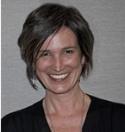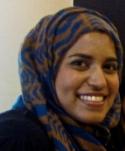Participants
This webpage includes information about the academic participants invited to the ‘Producing Islam(s) in Canada’ workshop in September 2017.
Over the course of the workshop, three Carleton University journalism students interviewed the scholars who attended. The students asked them about the workshop’s focus on knowledge production on Muslims and Islam(s) in Canada. In other words, what, how and why do we know what we know about Muslims and Islam(s) in Canada? What’s missing? What’s emphasized? Who’s doing it? Why is this introspection or line of questioning important (or not)?
Below are short clips of thoughts on these questions (and other bits) in the participants’ own voices. Our thanks to Salma, Jordan and Lauren to compiling and producing them.
Melanie Adrian, Carleton University
Adrian is Associate Professor in Carleton's Department of Law and Legal Studies. Her work has focused on the intersection of nationalism and belonging in minority religious communities in Europe and North America. Her most recent book is entitled, Religious Freedom at Risk: The EU, French Schools, and Why the Veil was Banned.
Sadaf Ahmed, University of Toronto
Ahmed is a PhD student in the Department for the Study of Religion at the University of Toronto. Situated in both anthropology as well as the interpretive methodologies of religio-legal discourses central to Islamic Studies, her research examines the varied ways Islam is constructed in the post-9/11 contemporary Canadian context.
Zaheeda Alibhai, University of Ottawa
Alibhai received her H.B.A from the University of Toronto. She is the recipient of the SCG scholarship for Outstanding Voluntary Contribution from the University of Toronto. She received her Master's Degree in Religion and Public Life at Carleton University. Her PhD research investigates the critical intersections between religion, law, politics, and media in the study of identity and multiculturalism in Canadian and international contexts. Since 2012 she has been a member of the Women’s Portfolio for the Ottawa Ismaili Council. She is the National PM for the Women’s Portfolio Girls Mentoring Programme in Ottawa, Quebec and the Maritimes. Alibhai is a student member of the Religion and Diversity Project and the recipient of the 2017 Women Building Communities Award from the Ministry of the Status of Women.
 Amarnath Amarasingam, Institute for Strategic Dialogue, Religion and Terrorism
Amarnath Amarasingam, Institute for Strategic Dialogue, Religion and Terrorism
Amarasingam is a Senior Research Fellow at the Institute for Strategic Dialogue, a Fellow at The George Washington University's Program on Extremism, and Co-Director of a study of Western foreign fighters based at the University of Waterloo. He is the author of Pain, Pride, and Politics: Sri Lankan Tamil Activism in Canada (2015). His research interests are in radicalization, terrorism, diaspora politics, post-war reconstruction, and the sociology of religion. His research on Muslim youth in Canada has involved extensive interviews and focus groups with diaspora youth from the Somali, Syrian, and Afghan communities. He has also interviewed dozens of foreign fighters and families of foreign fighters from Canada and elsewhere. He has published academic and popular pieces, exploring the lives and radicalization of some Muslim youth in Canada, and has been involved with policy debates on this issue.
Valérie Amiraux, Université de Montréal
Amiraux is Professor of Sociology at the University of Montreal. She has longstanding networks that examine Islam in the West: her first co-edited volume (with Gerdien Jonker, 2006), Politics of Visibilities: Young Muslims European Public Spaces is an example of knowledge mobilization stemming from the creation of a network of young scholars working on young Muslims in Europe. The network worked together for 2 years before publishing the volume as a result of their empirical and common theoretical statements. Amiraux has also been engaged in many conferences, workshops and publications looking at the production of knowledge of Islam and Muslims in the European contexts.
 Schirin Amir-Moazami, Free University, Berlin
Schirin Amir-Moazami, Free University, Berlin
Amir-Moazami is Professor of Islam in Europe at the Institute of Islamic Studies at Freie Universität Berlin. Her research interests include political secularism and secularity, critical political theory, body politics and the politics of knowledge production. She has published on public controversies related to Muslim bodily practices and regulations of religious plurality in France and Germany. She is co-editor of the web-based essay series “Provincializing Epistemologies”. Amir-Moazami recently completed an edited volume (in German) on the politics and epistemologies of knowledge production on Islam and Muslims in Europe entitled, The Inspected Muslim, and she is finishing a monograph entitled, Interrogating Muslims: The Politics of Integration in Contemporary Germany.
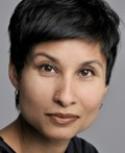 Natasha Bakht, University of Ottawa
Natasha Bakht, University of Ottawa
Bakht is Associate Professor of Law at the University of Ottawa where she teaches family law, criminal law and multiculturalism issues in the law. Bakht's research interests are in the intersecting area of religious freedom and women's equality. She has written extensively in the area of religious arbitration and assisted in Canadian judicial education on issues of religion, culture and diversity. Her most recent writings on the rights of niqab-wearing women were cited by the Supreme Court of Canada in the case of R v NS, 2012 SCC 72. Bakht is the current English Language Editor of the Canadian Journal of Women and the Law (CJWL).
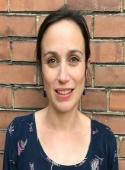 Amélie Barras, York University
Amélie Barras, York University
Barras is Assistant Professor in the Department of Social Science (Law & Society Program) at York University. She conducts research on the intersection between law, religion and politics. She has published on the politics of secularism in Turkey and France, including Refashioning Secularisms in France and Turkey: The Case of the Headscarf Ban (Routledge, 2014). She is currently finishing a book manuscript with Jennifer Selby and Lori Beaman on reasonable accommodation and Islam in Canada, which draws on 90 interviews with self-identified Muslims in Montreal, Quebec and St. John's, Newfoundland.
 Lori G. Beaman, University of Ottawa
Lori G. Beaman, University of Ottawa
Beaman is Canada Research Chair in Religious Diversity and Social Change and Professor in the Department of Classics and Religious Studies at the University of Ottawa. She is Principal Investigator of the Religion and Diversity Project, a 37-member international research team whose focus is religion and diversity. Recent publications include: Deep Equality in an Era of Religious Diversity (Oxford University Press, 2017) and "Re-posing the 'Muslim Question'," Critical Research on Religion special issue, 4(1) 2016. Beaman's research focuses on religion and diversity in relation to the fields of law, identity, gender and sexuality, youth, education, accommodation, and policy.
 Rachel Brown, University of Evansville
Rachel Brown, University of Evansville
Brown completed her PhD in Religion and Culture at Wilfrid Laurier University in 2016. She has expertise in Islam in Canada and Europe, religion and migration, lived religion, food studies, and qualitative research methods. Components of her doctoral ethnographic fieldwork in North African communities in Montreal and Paris are published in a special volume of Religious Studies and Theology (2016) on "Food and Religion," a chapter in an edited volume titled Everyday Life Practices of Muslims in Europe (21015) and in an article in the Bulletin for the Study of Religion (2017). Brown is currently revising her doctoral dissertation for publication with McGill-Queen's University Press and is writing an article on “Religion and Integration – The Case of Muslims in France” for the Encyclopedia of Politics and Religion, published by Oxford University Press.
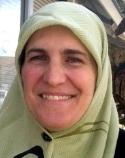 Katherine Bullock, University of Toronto & the Tessellate Institute
Katherine Bullock, University of Toronto & the Tessellate Institute
Bullock is a Lecturer in the Department of Political Science at the University of Toronto at Mississauga. Her teaching focus is political Islam from a global perspective; her research focuses on Muslims in Canada, their history, contemporary lived experiences, political and civic engagement, debates on the veil, and media representations of Islam and Muslims. Bullock co-founded the Tessellate Institute, an independent research institute that focuses on the experiences of Muslims in Canada in 2007 and continues to serve on its board of directors.
 Alyshea Cummins, University of Ottawa
Alyshea Cummins, University of Ottawa
Cummins is a Ph.D. candidate in the Religious Studies department at the University of Ottawa. Her dissertation examines how the Shi’i Ismaili Muslim community challenges anti-Muslim narratives in Canadian society. She also works as a research assistant for the Religion and Diversity Project (University of Ottawa) and the New Muslim Public Spheres in the Digital Age project (University of Quebec at Montreal). Alongside her research activities, Cummins volunteers as the National Newcomer Lead for the Aga Khan National Settlement Portfolio, steering a team to identify migrant community challenges and create standards and protocols to ensure the optimal (re)settlement of newly arrived immigrants and refugees.
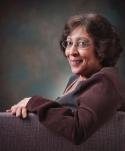 Parin Dossa, Simon Fraser University
Parin Dossa, Simon Fraser University
Dossa is Professor of Anthropology and Associate Member in the Department of Gender, Sexuality, and Women's Studies at Simon Fraser University. Her long-standing interest on displacement and critical feminist ethnography has led her to focus on the interface between social inequality, health and gender and the politics of knowledge production: who speaks, whose voices are heard and who is silenced. Based on her ethnographic research on social suffering and narratives of trauma, Dossa explores the differential effects of structural violence on the lived realities of Muslim women in Canada. She is author of numerous articles and chapters, and is co-editor of Transnational Aging and Reconfigurations of Kin-Work (Rutgers UP, 2017), and author of Afghanistan Remembers: Gendered Narrations of Violence and Culinary Practices (University of Toronto Press, 2014), Racialized Bodies, Disabling Worlds: Storied Lives of Immigrant Muslim Women (UTP, 2009) and Politics and Poetics of Migration: Narratives of Iranian women in the Diaspora (Canadian Scholar’s Press, 2004).
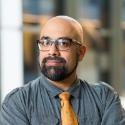 Anver Emon, University of Toronto
Anver Emon, University of Toronto
Emon is Professor and Canada Research Chair in Religion, Pluralism, and the Rule of Law. He specializes in the study of Islamic law. Emon has published books that reflect on the jurisprudence of Islamic law and legal theory, the treatment of minorities, and compelling questions at the intersection of Islamic law and human rights, which include The Oxford Handbook on Islamic Law (OUP, Forthcoming), Religious Pluralism and Islamic Law: Dhimmis and Others in the Empire of Law (OUP, 2012) and Islamic Natural Law Theories (OUP, 2010).
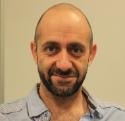 Paul Eid, Université du Québec à Montréal
Paul Eid, Université du Québec à Montréal
Eid is Professor of Sociology at UQAM, where he is also member of the Centre de recherche en immigration, ethnicité et citoyenneté (CRIEC). From 2005 to 2011, he worked as a researcher for Québec's Commission des droits de la personne et des droits de la jeunesse. His main research areas include immigration, interethnic relations, racism and discrimination, integration policies, and the roles played by religion in the public domain. His publications have, among others, focused on ethnoreligious identity building among 2nd generation youth (see Being Arab, MQUP, 2007), as well as on the multiple ways Muslim female teenagers in Montreal negotiate (and subvert) the social meanings embedded in the hijab (Ethnic and Racial Studies, 2015). He is currently engaged in FRQSC-funded research aimed at understanding the main factors contributing to the occupational segregation of recent immigrants in Montreal's labour market.
 Cory Funk, Memorial University of Newfoundland
Cory Funk, Memorial University of Newfoundland
Funk is currently completing his MA thesis on Muslims in Canada, titled, "Hashtagging Islam: #JeSuisHijabi, Social Media, and Religious/Secular Identities in the Lives of Muslims in Winnipeg and St. John's, Canada." Funk takes a two-pronged approach based on interviews with 17 self-identified Canadian Muslims in Winnipeg and St. John's about how they use the internet to navigate life in Canada, and examination of the content of tweets that use the hashtag #JeSuisHijabi. Funk argues that the identities being communicated by Muslims on social media, through hashtags like #JeSuisHijabi, complicate the so-called religious/secular separation in Canadian society. He recently published a short piece for the Tessellate Institute.
Roshan Arah Jahangeer, York University
Jahangeer is a Ph.D. candidate (ABD) in the department of Political Science at York University and teaches in the department of Gender and Women's Studies at York's Glendon campus. She is also a research fellow at the Tessellate Institute in Toronto.Her doctoral research explores the transnational circulation of anti-veiling laws and debates between France and Québec in the contexts of secularism, feminism, colonialism and islamophobia. Jahangeer's publications include the policy paper, Towards an Inclusive Secularism and a Transformative Model of Community Engagement in Québec (2014), as well as a chapter in the anthology, At the Limits of Justice: Women of Colour on Terror (2014).
 Karim H. Karim, Carleton University
Karim H. Karim, Carleton University
Karim is Professor in the School of Journalism and Communication, which he formerly directed. He has conducted research on the media coverage and practice of Islam in Canada since the 1980s in various capacities including as a research officer in the federal government and as a professor. As Director of the Carleton Centre for the Study of Islam, which will officially host our workshop, he has worked with other academics and with community organizations to address issues relating to Muslim Canadians. Karim has supervised multiple masters and doctoral level theses on topics relating to Muslims in Canada and has published extensively on the topic.
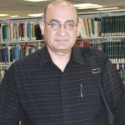 Abdie Kazemipur, University of Calgary
Abdie Kazemipur, University of Calgary
Kazemipur is professor of Sociology and Chair of Ethnic Studies at the University of Calgary. His most recent book, The Muslim Question in Canada: A Story of Segmented Integration (2014, UBC Press), received the 2015 John Porter Award from Canadian Sociological Association. His most recent SSHRC grant (awarded in 2016) entitled, "After the Ottawa Attack," is focusing on the Muslim/Non-Muslim relations in Canada after the terrorist attacks of October 2014 and the Quebec City mosque shooting in 2017.
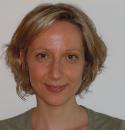 Géraldine Mossière, Université de Montréal
Géraldine Mossière, Université de Montréal
Mossière is an anthropologist who teaches in the Institut d'études religieuses at the University of Montreal. She conducts empirical research on religion and migration by focusing on new religious mobility and subjectivities. She has worked and published on women converts to Islam in Quebec and in France, as well as on identification process among young converts to Islam in Quebec (see Converties à l'islam. Parcours de femmes au Québec et en France, 2013). Mossière is now examining the role of Islam as new mode of sociability as well as a resource for identity construction for young people who feel attracted to Islam in a project funded by a SSHRC Insight Grant (2016-2019).
 Jennifer A. Selby, Memorial University of Newfoundland
Jennifer A. Selby, Memorial University of Newfoundland
Selby is Associate Professor of Religious Studies. She conducts research on the intersections of secularity and constructions of Islam in Western contexts. Her ethnographic research has focused on a suburb of Paris, the Greater Toronto Area, and St. John's, NL. Some of this research has been published in Questioning French Secularism: Gender Politics and Islam in a Parisian Suburb (Palgrave, 2012) and Debating Sharia (ed. with Korteweg, U Toronto Press, 2012), as well as in recent journal articles in Critical Research on Religion, Studies in Religion and Ethnologie française.
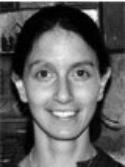 Meena Sharify-Funk, Wilfrid Laurier University
Meena Sharify-Funk, Wilfrid Laurier University
Sharify-Funk is Associate Professor and Head of WLU’s Religion and Culture Department. She has not only published on the subject of Islam in Canada (as well as North America), but also on Sufi thought and identity, women and Islam and the role of cultural and religious factors in peacemaking. Her books include: Contemporary Sufism: Piety, Politics and Popular Culture (2018, in press), Unveiling Sufism: From Manhattan to Mecca (2017), Encountering the Transnational: Women, Islam, and the Politics of Interpretation (2008), Contemporary Islam: Dynamic, Not Static (2006) and Cultural Diversity and Islam (2003).
 Hicham Tiflati, Université du Québec à Montréal
Hicham Tiflati, Université du Québec à Montréal
Tiflati currently holds three positions: as associate investigator for McGill University's "Educational Trajectories of Radicalized Females" project, funded by the Canadian Network for Research on Terrorism, Security and Society (PI Ratna Ghosh); fellow at the German Institute on Radicalization and De-radicalization Studies (GIRDS); and as project coordinator of UQAM's "New Muslim Public Spheres in the Digital Age", on Canadian Muslims online (PI Roxanne Marcotte). Tiflati was recently Associate Researcher for the "Canadian Foreign Fighters project" (DRDC) based at the University of Waterloo, doing recruiting, interviewing, translating and facilitating access to the Muslim community. Tiflati's primary research centres on identity politics, citizenship, belonging, integration, religious extremism, and radicalization (on which he has published and lectured extensively). He is active coaching and teaching Muslim youth both in the field and in academia.
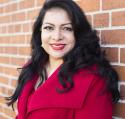 Jasmin Zine, Wilfrid Laurier University
Jasmin Zine, Wilfrid Laurier University
Zine is Professor of Sociology & the Muslim Studies Option at Wilfrid Laurier University. Her publications include numerous journal articles on Islamic feminism and Muslim women's studies and Muslims and education in the Canadian diaspora. Her books include: Canadian Islamic Schools: Unraveling the Politics of Faith, Gender, Knowledge and Identity (2008, University of Toronto Press) the first ethnography of Islamic schooling in North America and the edited collection, Islam in the Hinterlands: Muslim Cultural Politics in Canada (2012, University of British Columbia Press) and a co-edited book (with Lisa K. Taylor) Muslim Women, Transnational Feminism and the Ethics of Pedagogy: Contested Imaginaries in post-9/11 Cultural Practice (2014, Routledge Press). She recently completed a six-year national study funded by the Social Sciences and Humanities Research Council (SSHRC) on the impact of 9/11, the 'war on terror' and domestic security discourses and policies on Muslim youth in Canada. She is currently finishing a book manuscript based on this study tentatively titled, Under Siege: Islamophobia, Radicalization, Surveillance and Muslim Youth Counter Publics. As an education consultant she has developed award winning curriculum materials that address Islamophobia and anti-Muslim racism and has worked as a consultant with the Office for Democratic Institutions and Human Rights at the Organization for Security and Cooperation in Europe (ODHIR/OSCE), the Council of Europe, and the United Nations Educational, Scientific and Cultural Organization (UNESCO) on developing international guidelines for educators and policy-makers on combating Islamophobia and discrimination against Muslims. Zine is an affiliated faculty member with the Islamophobia Research and Documentation Project (IRDP) at U.C. Berkeley and serves on the editorial board of the critical Muslim Studies journal Re-Orient.
___
Carleton Journalism and Communication Assistants:
-
Salma Mahgoub
- Mahgoub is an undergraduate student at Carleton University with a major in journalism and human rights. She is passionate about using feature writing and audio journalism to tell stories. Mahgoub's interests include fostering civic engagement and understanding how media narratives influence human rights.
-
Jordan Omstead

Lauren Sproule
- Sproule is a Master of Journalism student at Carleton University with a BA in Theatre from York University. She is the author of "We have to mix eventually," an exploration of modern-day interfaith relationships. Sproule's master's research project is focused on how the recommendations made by the Truth and Reconciliation Commission are being integrated into education systems in Canada.


